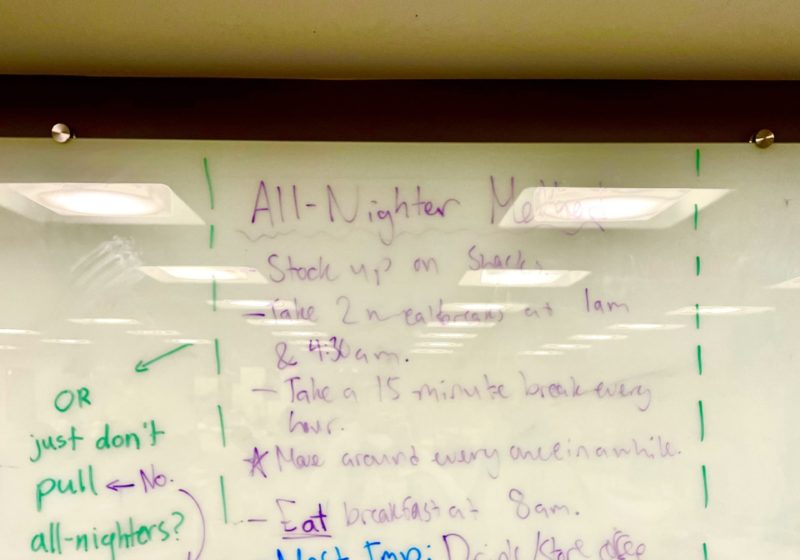If you grew up anytime during the early 2010s, you’ll remember “YOLO.”
As the prominent philosopher Drake once said, “You only live once, that’s the motto — and we about it every day.” Life is too short, they say, so you should do what you want to do in that moment, even if it may seem impulsive or dangerous. At the same time, however, we’ve been reminded that “the grind never stops.” I’m sure you’ve seen those videos of so-called self-made millionaires talking about their daily grind — waking up at 3 a.m., then juggling their 12 businesses for 17 hours all while learning Mandarin and doing their Big Three lifts. Surely, there must be some kind of balance between full-on hedonism and working the skin off your bones, right? We want to go at the fastest pace we can without hurting ourselves in the process, but as cutthroat as the world may seem sometimes, it’s important to listen to ourselves and improve on our own terms. You might ask, what are the best ways to do that? Let’s contrast the two sides here: play versus work.
It’s a well-known secret in the tech industry that when companies say their employees “work hard and play hard,” it’s just code for treating their workers like trash. “Playing hard” is a real thing though, and it could greatly benefit you if you know how to do it. The key here is to be deliberate with how you spend your down time — and you do need down time, if you didn’t realize that already. The greatest inventions, the most magnificent musical pieces, and the most impressive mathematical proofs in history were almost always pondered over for hours — most of which was done outside of their work station. As long as you don’t fall into the trap of what I call mindless downtime — things that you barely remember after the fact, like excessively scrolling through your Instagram feed — you should be fine.
I swear that I am not trying to give boomer advice here; you have the God-given right to scroll through your social media as long as you want! But think about why you are scrolling through TikTok: Is there something you would rather be doing, like spending quality time with your friends? Perhaps honing your skills in volleyball or running? Importantly, though, what if you do find satisfaction in your social media scrolling? Well then, don’t let me take that away from you. If you truly think this is the best way to spend your free time, then live for yourself and do what you want to do. What if it’s something that isn’t mindless, but quite the opposite? Participating in a running of the bulls or trying peyote (just kidding, this is a drug-free campus)? Well, as long as the opportunity won’t put you or others in danger, I don’t see why not. Life is indeed short; just make sure you don’t accidentally cut it shorter.
Now, let’s talk about work. Without going into a tirade about how modern America is designed to exploit your labor, I will say that we work for the wrong reasons. Too many of us, including myself at times, chase blindly after the vague idea of success. We want to be remembered after we’re gone, or perhaps we want people now to look at us and talk about how successful we are. We define success in terms of how others might see us, but we’ve forgotten the one thing that makes it all for naught — people think about themselves. Everyone is thinking the exact same thing as you are: “What does everyone think about me?” but we fail to realize that no one is actually spending that much time thinking about other people.
For this reason, we should work only for ourselves — embrace that self-absorbedness! Don’t slack off if you think you can do better, but remember that improvement is defined on your own terms. We have, on average, 70 to 80ish years on Earth. You might as well use them to beat whatever goals you set for yourself. It’s what Nietzsche truly meant by nihilism — he did not mean that everything is pointless and you therefore should not try anything. Instead, he meant that value in what you do is defined by what you give value.
Just some food for thought before you go, though: Never stop wondering why you have the goals you set for yourself. As a last example, say you want to be rich. Well, why is that? Having enough money to pay the bills is one thing, but do you really assign yourself happiness with your third yacht? Always be skeptical, my friends.




